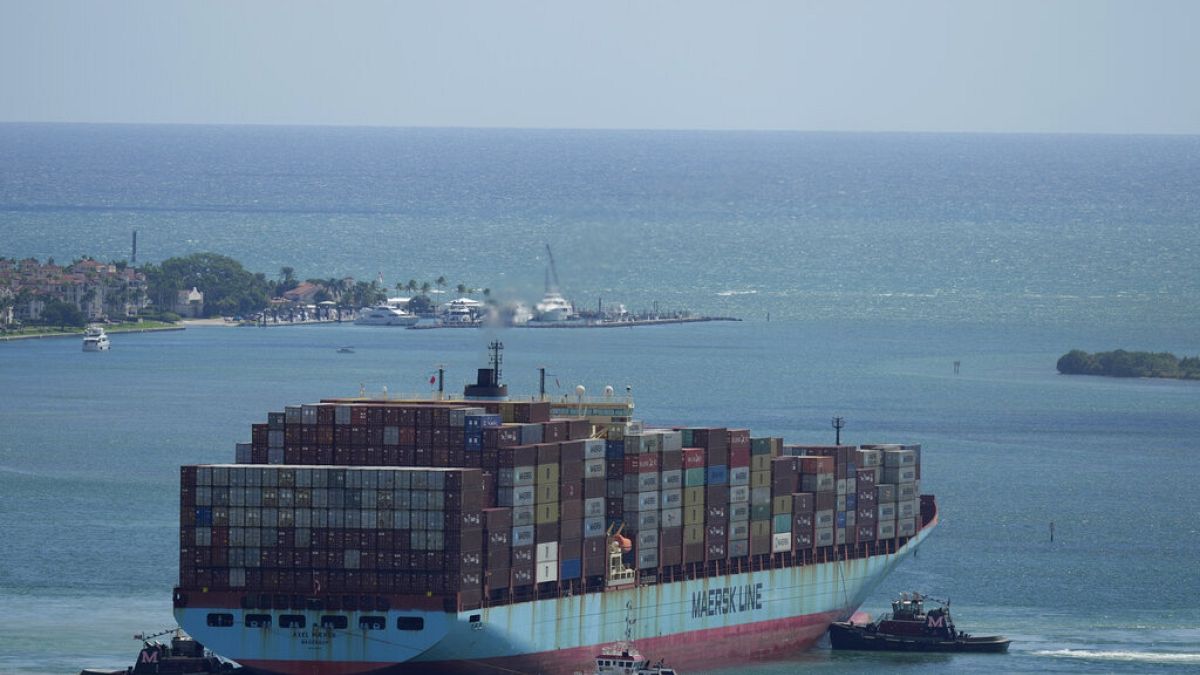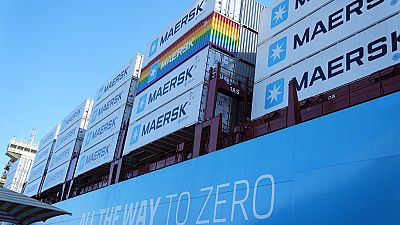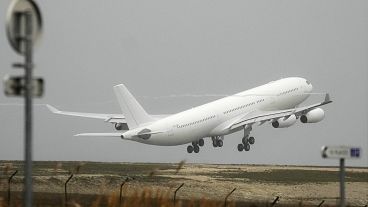Denmark's Maersk, like several other shipping companies, had paused Red Sea journeys due to Houthi attacks in the area.
Shipping mogul Maersk is preparing to restart operations in the Red Sea, following a brief hiatus, citing that the US-led multinational naval operation Operation Prosperity Guardian (OPG) has been set up to protect shipping from attacks by Houthi rebels in the region.
Maersk said in a statement Sunday, “With the OPG initiative in operation, we are preparing to allow for vessels to resume transit through the Red Sea both eastbound and westbound. We are currently working on plans for the first vessels to make the transit and for this to happen as soon as operationally possible.”
However, the company has highlighted that it may very well reverse its decision, depending on the security developments in the region.
On Saturday, a US warship shot down four incoming drones originating from Houthi-controlled areas, and a Norwegian-flagged chemicals and oil tanker reported a near miss of an attack drone, while an India-flagged tanker was hit with no injuries reported, reported AP citing the US Central Command's announcement on X, formerly Twitter. The incidents represented the 14th and 15th attacks on commercial shipping by the Houthis since 17 October.
Commercial vessels in the line of fire
Yemen's Iran-backed rebel group has recently increased its attacks in the region to protest Israel’s activities in Gaza causing the world's biggest commercial shipping companies, such as Maersk, to pause operations in the area.
Among other incidents, Maersk previously reported that their Gibraltar container ship was hit by a drone. They also announced plans to redirect their commercial vessels to avoid the Red Sea but later retracted this.
This is likely due to the exponentially higher costs of having to sail around Africa, as well as the added time that this journey is expected to take. Shipping companies who have had to take this alternative in the past have been forced to add shipping surcharges, to cover the costs.
Why is the Red Sea so crucial?
Currently, the Suez Canal, along with the Red Sea forms the most rapid shipping lane between Asia and Europe, accounting for about 12% of worldwide shipping traffic. The Red Sea is especially vital for liquefied natural gas (LNG), with about 4% to 8% of the world’s LNG being transported through this channel. Around 8.2 million barrels of crude oil and oil products have also been shipped via this route from January to November this year.
Other shipping routes, such as the Cape of Good Hope are likely to add about 3,500 nautical miles to journeys, with the increased costs discouraging several shippers from making the journey at all. This has gone a long way in worsening already backed-up supply chains. The few companies who do brave the longer routes are forced to pass on sharp hikes to consumers.
Other major shipping companies, including Hapag-Lloyd and Mediterranean Shipping Company, have also been affected by the Red Sea attacks and were forced to halt operations temporarily.
However, Hapag-Lloyd has recently revealed that it will soon reevaluate how to proceed, given the changing situation following the task force.



